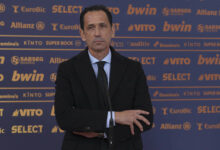What to look for in Doug Ford’s next 100 days as premier
Premier Doug Ford isn’t being humble in describing his first 100 days in office. He says his new government has taken “action the likes of which Canada has never seen before.”
So, what will he do for an encore?
It’s unlikely the Ford government can keep up the breakneck pace of its first 100 days, when it moved quickly to scrap pretty much anything the Liberals left behind that wasn’t firmly set into political concrete. Tackling other parts of the 15-year Liberal legacy — and starting to build his own — will take Ford more time.
Here are the key things you can expect to see in the next 100 days.
Employment laws
Ford clearly has Bill 148 in his sights. These are the workplace reforms passed under the Wynne government that grant all employees a minimum of two paid sick days, and force employers to pay casual and part-time workers at the same rate as full-time staff if they’re doing the same job.
Ford’s ministers of labour and economic development insist they are still consulting Ontarians about what to do about Bill 148. But Ford seems to have his own mind made up already.
“We’re getting rid of it,” he declared last week. “Everywhere I go, no matter if it’s small businesses, medium businesses or large businesses, they tell me that Bill 148 is a failed Liberal policy that is driving jobs and investment out of Ontario.”
Ford hasn’t offered any specific examples of jobs driven out of the province by Bill 148. The latest Statistics Canada figures show 103,000 more full-time jobs in Ontario compared with a year earlier, and no drop in part-time jobs since the reforms took effect.
Deficit
The Ford government says it has inherited a $15 billion deficit and you can expect that this will provide the justification for many of their next moves.
In the next two months, Finance Minister Vic Fedeli will table the fall economic statement. This will be the first document with any detail about the PCs’ budget intentions; while they listed the costs of their election promises, they did not lay out a fiscal plan in the campaign.
The statement should offer some hints of where the PCs plan to cut to get back toward a balanced budget. There is not a lot of low-hanging fruit available that can be easily trimmed. Expect them to terminate the Jobs and Prosperity Fund, a corporate grant program designed under the Liberals. They’ll have to do far more than just pull the plug on landlines in cabinet ministers’ offices.
The fall statement may also indicate when Ontarians will start to see some of the billions of dollars worth of tax cuts that the PCs promised during the campaign: lowering the corporate tax and small business tax rates, eliminating the provincial portion of income tax for minimum wage workers, slashing the fuel tax and providing an income tax cut that gives the biggest break to people earning $86,000 and up.
Meanwhile, the PCs will attempt a sweeping investigation of accounting decisions the Wynne government made to keep the deficit looking much smaller, a probe that one Liberal likens to a witch hunt. The committee is seeking documents and will call witnesses, and it is to provide a final report by the Christmas break.
Climate change plan
After scrapping the Liberals’ cap-and-trade program to reduce greenhouse gas emissions as one of its first moves, the Ford government is promising its own climate change plan this fall. The PCs say the focus will be on making polluters pay, not families, and creating an emissions reduction fund.
As CBC News revealed last week, the Ford government is sitting on $1 billion in unspent money from that cap-and-trade fund, money that by law must be used to fight climate change.
Many will be watching to see whether Ford’s climate change plan actually cuts emissions without putting some sort of price on carbon.
Campaigning against Trudeau
At his rally marking 100 days in office earlier this week, Ford’s speech indicated that Prime Minister Justin Trudeau is his next big political target.
“We’ve taken Kathleen Wynne’s hands out of your pocket,” said Ford. “We’re going to take Justin Trudeau’s hands out of your pockets.”
Ford was talking specifically about the federal carbon tax, which his government is fighting in court. He soon shifted to the renegotiated U.S.-Mexico-Canada trade deal.
“The Trudeau Liberals left out Ontario farmers, they left out Ontario steelworkers and aluminum workers,” said Ford to boos from the crowd. “They used Ontario jobs as a bargaining chip and Justin Trudeau is out there taking a victory lap without giving honest answers.”
Ford’s rally last week with Jason Kenney, leader of Alberta’s opposition United Conservative Party, and his meeting with Scott Moe, the premier of Saskatchewan, suggest that Ford will work in concert with other conservative politicians to try to bring about the defeat of the federal Liberals in next year’s election.
Expect the unexpected
After Ford won in June, I predicted quick moves on carbon pricing, Hydro One, sex-ed, investigating Liberal finances and ending the York University strike. All those predictions proved correct. However, I did not predict (nor did anyone else) the move to slash the number of Toronto city council seats.
While it’s true that Ford never once specifically mentioned council’s size during the election campaign, he did campaign on a promise to cut the size and cost of government. Extrapolate from that and you can see how his less specific campaign promises could be manifested in unexpected ways.
One possibility? Look for moves to dismantle some of Ontario’s health care bureaucracy. Ford has often suggested he wants more money to flow to front-line health care and less to administration. This could mean bodies such as the local health integration networks (LHINs) are in for it.
The PCs are also promising a comprehensive reform to social assistance by early November. What shape that will take is anybody’s guess.
And it’s not clear when Ontario electricity users will see the 12 per cent promised reduction in their hydro bills.
The PCs said they would make this happen by handing the government’s Hydro One share dividend back to ratepayers. Hydro One paid its most recent quarterly dividend in late September. The province’s share was worth about $65 million.
Asked on Wednesday what the government did with the money, a spokesperson for the energy minister was unable to provide an answer.








Redes Sociais - Comentários